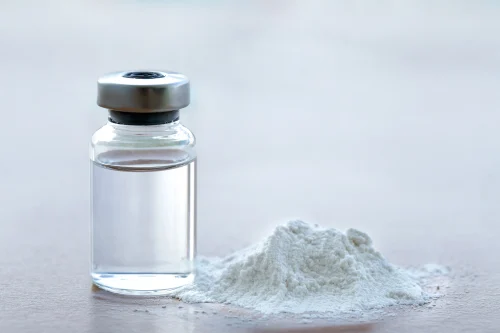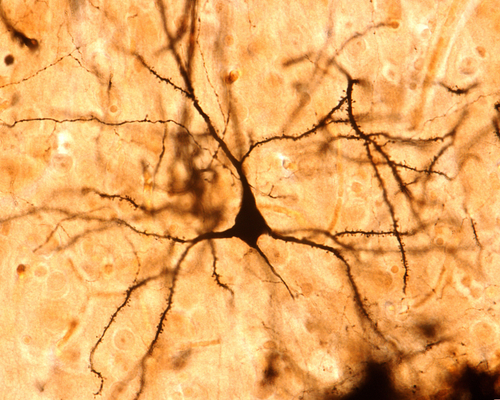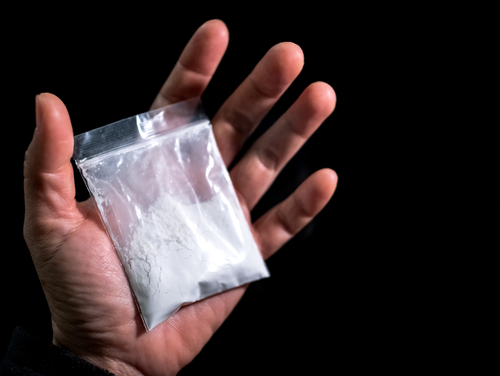Ketamine withdrawal and addiction aren’t as well known or dangerous as other substances such as opioids or benzos, but they can be just as psychologically destructive if you don’t the risks. Even experts and studies on ketamine can’t exactly pinpoint its effects over time since ketamine abuse is a relatively new trend.
This article delves into ketamine withdrawal, including its potential danger, the usual detox timeline, the possibility of addiction development, and available treatment options.

What Is Ketamine?
Ketamine is a prescription drug known as a dissociative anesthetic. It’s used in medical settings for humans and animals, though it’s more common as a tranquilizer for animals. It’s also been recently used to help manage mental health conditions, including treatment-resistant depression, anxiety disorders, and post-traumatic stress disorder. Although this form of treatment is controlled, ketamine is only used to produce short-lived but intense subjective experiences, which triggers an altered and positive mindset.
However, individuals have been known to abuse ketamine for its mild hallucinogenic, psychedelic, and sedative effects, similar to PCP. It can cause distorted senses, making users see and hear unusual things. It also makes people feel disconnected from their surroundings and themselves.
Ketamine comes in forms like white powder and clear liquid. The liquid is sometimes stolen from veterinary offices and sold as a recreational drug. People often inject it or turn the liquid into a powder for snorting or swallowing. Ketamine is sometimes mixed with other illegal substances like opiates, marijuana, or alcohol. The powder can even be added to tobacco or marijuana and smoked.
Is Ketamine Withdrawal Dangerous?
The symptoms of ketamine withdrawal aren’t as dangerous as the physical withdrawal symptoms from other substances, but the psychological symptoms can be just as harmful. The University of Maryland Center for Substance Abuse Research (CESAR) and the Journal of Psychoactive Drugs both found that quitting ketamine use after developing a tolerance can lead to cravings, mood swings, agitation, anxiety, and depression. While these symptoms aren’t dangerous, they can cause users to abuse ketamine again to relieve their discomfort, continuing the use and abuse cycle. Other ketamine withdrawals you should know about include:
- Insomnia
- Fatigue
- Shakes
- Sweating
- Nausea
- Elevated body temperature
- Heart palpitations

Ketamine & Excitotoxicity
Ketamine acts by blocking a specific glutamate receptor called the NMDA receptor. This receptor regulates neuron communication and is essential for normal brain function. By blocking the NMDA receptor, ketamine reduces the transmission of signals between neurons, leading to its anesthetic and dissociative effects.
However, some research suggests that high doses of ketamine or chronic use can disrupt the balance of neurotransmitters, including glutamate, and increase excitatory activity in certain brain regions. This excessive activation of glutamate receptors could potentially contribute to neuronal damage or excitotoxicity.
This process can contribute to various neurological conditions and diseases, including stroke, traumatic brain injury, neurodegenerative disorders like Alzheimer’s and Parkinson’s disease, and certain psychiatric disorders.
Typical Ketamine Detox Timeline
Getting through Ketamine withdrawal can take anywhere from 3 days to a few weeks, especially when dealing with the mental symptoms tied to excitotoxicity. While it’s usually not life-threatening, it can make you feel uneasy. You’ll usually start experiencing symptoms within a day to three days after your last dose of Ketamine. The duration of withdrawal depends on factors like how much of the drug is still in your body, how used to it your body is, how long you’ve been using it, and whether you were using other drugs too.
To help with Ketamine withdrawal, doctors might use medications like benzodiazepines to manage anxiety and sleep issues. They might also use antidepressants to address mood-related symptoms and cravings and antinausea medications to help with vomiting and dizziness.

Can You Develop Ketamine Addiction?
Yes, you can develop a psychological addiction to ketamine if you use it to escape or cope with negative emotions or an undiagnosed mental health disorder. The longer you use ketamine, the more your brain depends on its mood-boosting effects. Once your brain builds a tolerance to ketamine, it will need more of the substance to experience the same effects as when you first started using it (tolerance). Sometimes, a ketamine addiction accompanies another mental health or substance use disorder, also called polysubstance abuse or dual diagnosis.
Ketamine Addiction Treatment
When treating Ketamine addiction, its most effective use uses various forms of behavioral therapies tailored to address the psychological aspect of dependence and structured levels of care to address the behavioral parts. Here are some of the approaches that can be part of your treatment plan:
- Cognitive Behavioral Therapy (CBT): This helps you work on patterns that influence behaviors. You’ll learn about cognitive distortions, which are false beliefs we can convince ourselves of, such as needing ketamine in order to function or feel happy.
- Dialectical Behavioral Therapy (DBT): You’ll learn about mindful awareness and managing stress effectively. DBT is usually used in group therapy sessions, so you’ll have a chance to hear other perspectives and experiences on ketamine addiction and abuse.
- Acceptance And Commitment Therapy (ACT): This approach combines mindfulness, acceptance strategies, and ways to make positive changes in your behavior, establishing a secure recovery mindset.
- Detox: Detox is crucial for handling Ketamine withdrawal, but remember that withdrawal is often just one part of the bigger issue: Ketamine dependence and addiction.
- Inpatient Rehab Programs: This is the most intensive kind of treatment. You stay at a treatment facility throughout your program, which might last for 30, 60, 90 days, or more, depending on your situation.
- Outpatient Rehab Programs: If your addiction isn’t as severe, outpatient programs might be the right fit. You’ll participate in therapy, group sessions, and medication-assisted treatment, and then return home at the end of the day. There are different types of outpatient programs, like partial hospitalization, intensive outpatient treatment, and even virtual options.
- Aftercare: Remember, addiction recovery is a long-term journey. Aftercare plays a key role in helping you stay off Ketamine for the long haul. This could involve ongoing support from 12-step groups, individual counseling, or continued therapy.
The goal is to give you the tools and resources you need to maintain your sobriety and lead a healthier, happier life.
Read more: Top 10 Benefits of PHP Rehab for Addiction Treatment
Contact East Coast Recovery Center
If you or someone you know is struggling with ketamine withdrawals or addiction, contact East Coast Recovery Center in Boston, Massachusetts. We can refer you to one of our clinical partnerships for detox services or sign you up for one of our addiction treatment programs. We offer various levels of care that are meant to fit your schedule and goals. Ketamine addiction doesn’t need to be permanent, and East Coast Recovery is ready to help.











